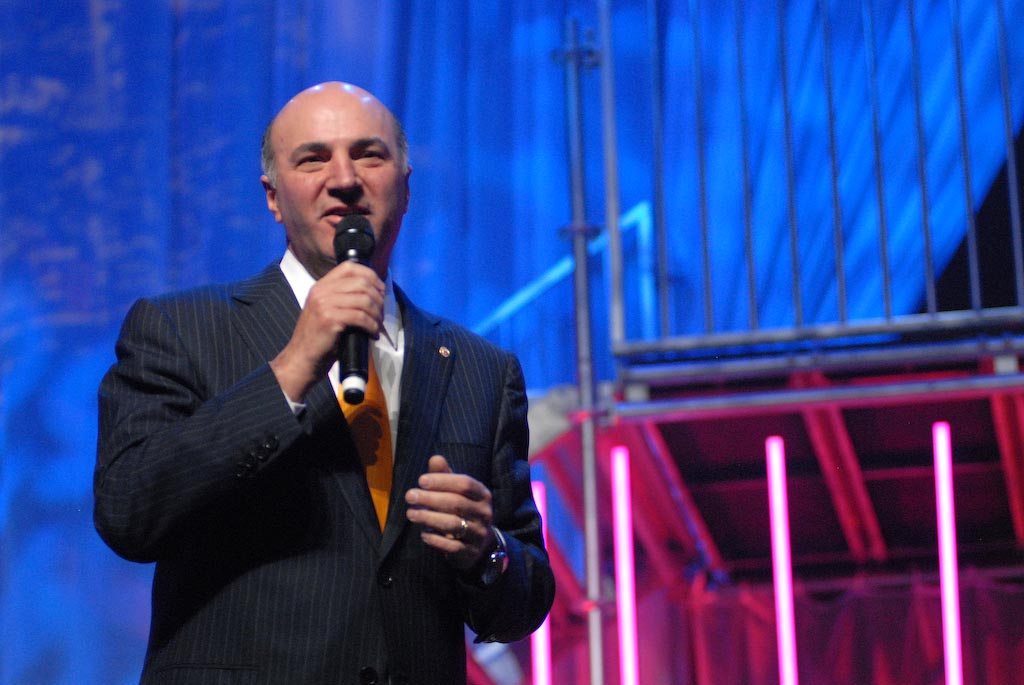Canada News
Conservative leadership contenders seek to appeal to party’s heartland

Maverick businessman Kevin O’Leary, opted out of the debate, claiming the all-candidates format offers little opportunity for meaningful debate. (Photo: Ontario Chamber of Commerce)
EDMONTON—An appeal to families, an appeal to values, an appeal to the oilpatch and an appeal to Edmonton Oilers fans — leadership hopefuls in the Conservative party’s heartland went straight for its heart Tuesday as they squared off yet again in a bilingual debate.
Thirteen of the 14 candidates crowded onto a stage in Edmonton to put their campaign policies on display and occasionally spar over popular themes like carbon pricing, the perils of a Justin Trudeau government and dusting off the notwithstanding clause to overrule liberal courts.
The 14th candidate, maverick businessman Kevin O’Leary, opted out of the debate, claiming the all-candidates format offers little opportunity for meaningful debate. Instead, he held his own gathering with party members at a downtown hotel across the street.
In a 90-minute question-and-answer session, O’Leary reiterated his goal to run the federal government on a rational, business-oriented framework, one aimed at creating jobs and opportunities for the 18-35-year-old cohort he believes is so key to forming a majority government.
He also renewed his attack on Alberta Premier Rachel Notley. He said Notley’s team has made the low-oil slump much worse by introducing new levies such as the carbon tax and by failing to provide incentives for oilpatch development.
“If she worked for me in any of my companies, I would have fired her a long time ago,” O’Leary said to applause. “She is a toxic cocktail of mediocrity and incompetence blended into one drink.”
In O’Leary’s absence, meanwhile, it was Michael Chong and his support for a “revenue-neutral” carbon tax — a controversial position in Conservative circles, as well as in Alberta — that proved the most popular target in the early going.
“It is the cheapest way to reduce emissions, it is the most Conservative approach,” said Chong, who was roundly booed by the Alberta audience every time he brought up the idea.
“I am committed to this policy because it is a conservative policy that will do right for our children and our grandchildren, and do right for Canada.”
Chong likened the battle to former prime minister Brian Mulroney’s bid to secure a Canada-U.S. free trade deal in the 1980s.
“Brian Mulroney in the 1988 free trade election did a 180 on free trade because he knew that fighting for free trade was the right thing for his children, and his grandchildren,” he said.
“It was the right thing for Canadians and he fought that election and we won it and we have never looked back.”
Saskatchewan MP and former Commons Speaker Andrew Scheer dismissed the notion out of hand.
“I’ve never seen a revenue-neutral carbon tax,” he grinned. “If Santa Claus, the tooth fairy and a revenue-neutral carbon tax all see a dollar on the sidewalk, which one picks it up?”
At the outset of the debate, each candidate gave a brief opening statement aimed at setting themselves apart from the others — no mean feat with a total of 13 people on the stage. They made only oblique reference to the man not on the stage, as well as his famous lack of facility with French.
Across the street, O’Leary said he’s had it with the all-candidates format. “It’s not a debate,” he said. “It’s a series of 10-second sound bites.”
The other candidates should thank him for boycotting the debate, he joked, estimating it gave their 60-second answers an extra 4.6 seconds.
Lisa Raitt, who opened the proceedings, alluded to the challenge of standing out in a crowd of familiar faces when she joked about how she and her rivals “violently agree” on the same policies. She also stressed her connections with ordinary Canadians.
Kellie Leitch seized on a policy that many disagree with, focusing on her promise to screen everyone coming to Canada for so-called Canadian values like generosity and hard work.
Canada, she said, has a “unified Canadian identity” and “a Canadian way: men and women are equal, you can worship who you wish, (and) hate speech is unacceptable.”
She said newcomers seeking to enter the country should all be interviewed, saying that only happens one out of every 10 times, meaning some 270,000 individuals entered Canada last year and didn’t meet a Canadian, she said.
Leitch even threw in a plug for a promotional video she has on her website that’s received more attention for its odd production values, skewed camera angles and pregnant pauses than any of its messaging — a sign, perhaps, that she welcomes the attention, be it good or bad.
“We win when we are not afraid,” Leitch said. “I’m going to fight for those Conservative ideals every single day.”
At one point, Scheer made his position clear on the “crisis” of migrants from the U.S. who are streaming into Canada at unmanned border crossings in Quebec and Manitoba.
“We need to close this loophole,” he said. “This is an abuse of our system, and we need to preserve the integrity for legitimate refugees and legitimate people coming to this country.”
Vancouver businessman Rick Peterson, originally from Grande Prairie, Alta., played to a different sort of Canadian value, showing up on stage in an Edmonton Oilers hockey jersey to portray himself as an Albertan at heart.
“This is my hometown — any leadership lessons I learned were learned here,” he said, describing the hardship his family experienced under a Pierre Trudeau government — an upbringing that included a lot of meals of “wieners and beans.”
“We’re on a track for wieners and beans with the second Trudeau,” he said, pitching his plan for eliminating corporate income taxes and imposing a 15 per cent flat tax on individuals.





















